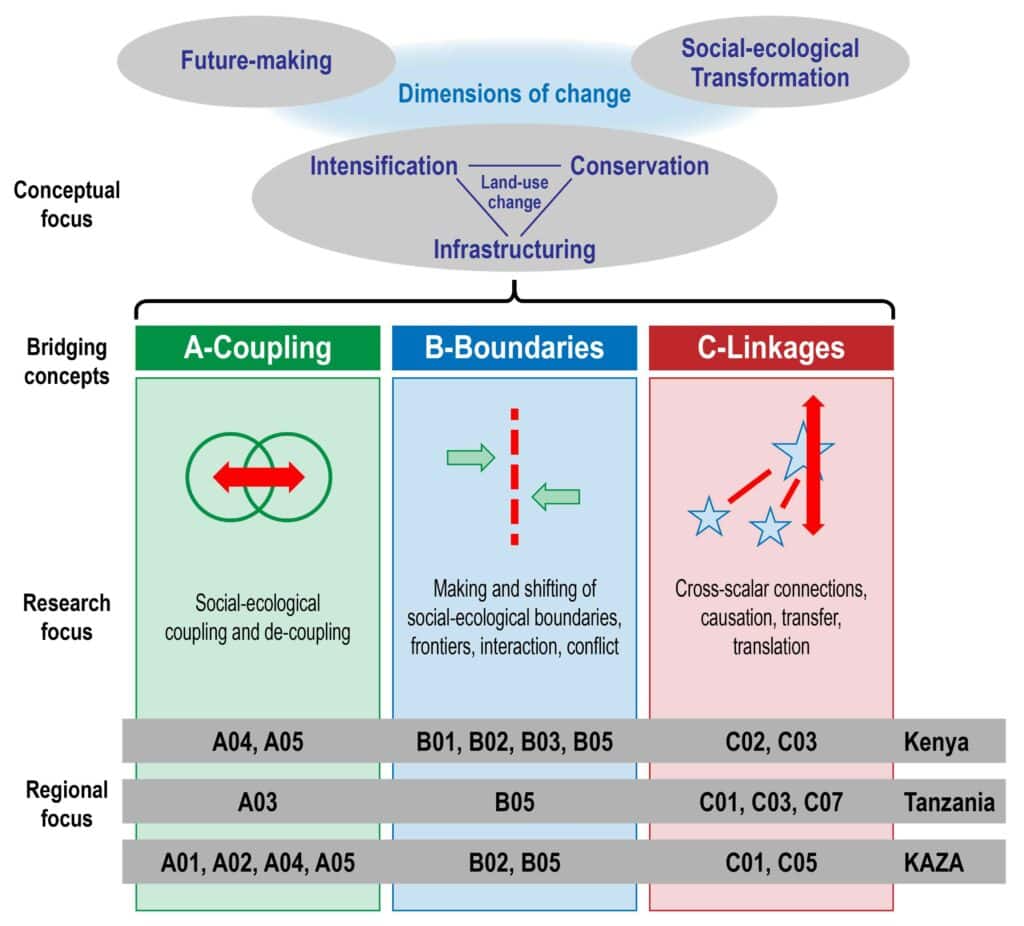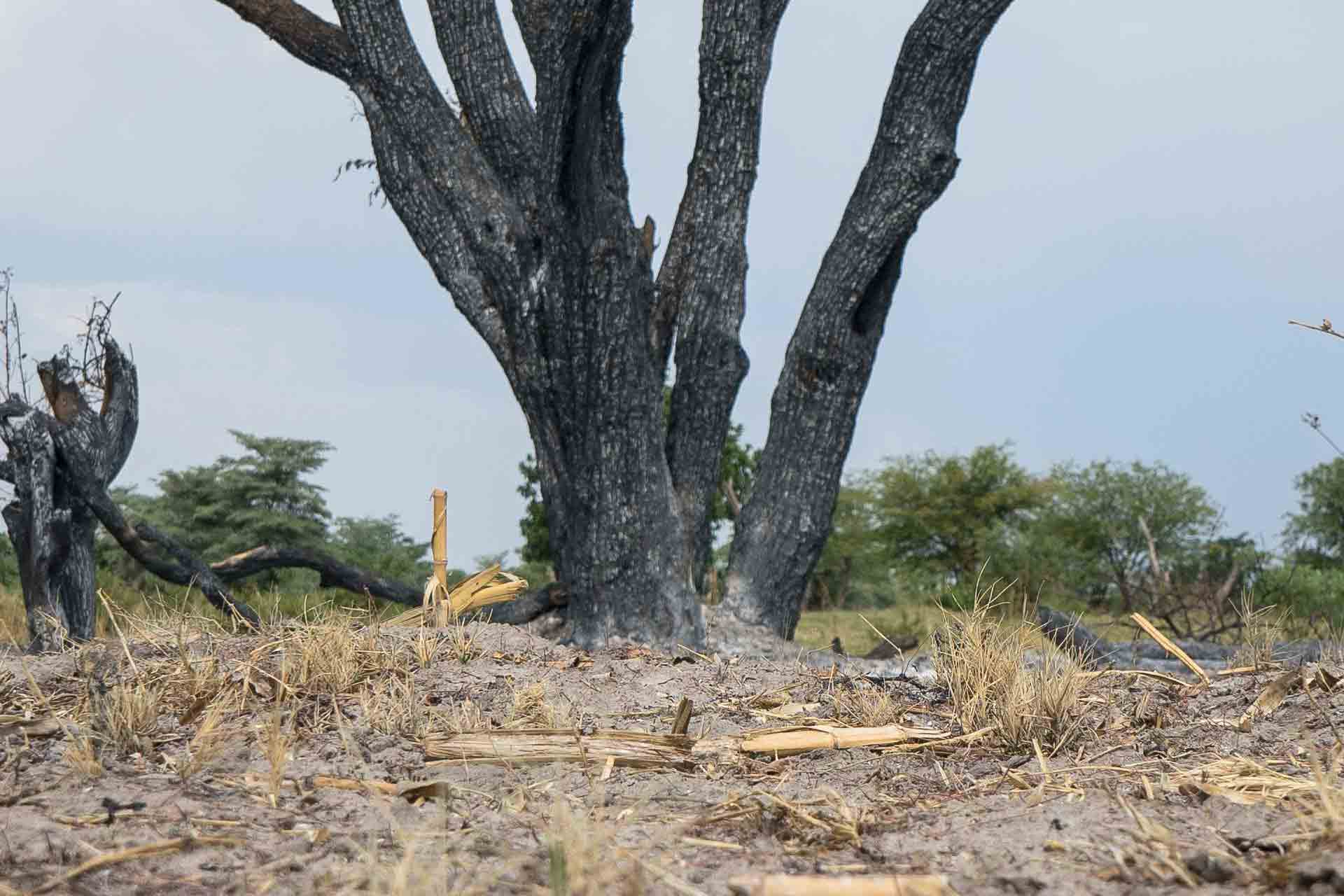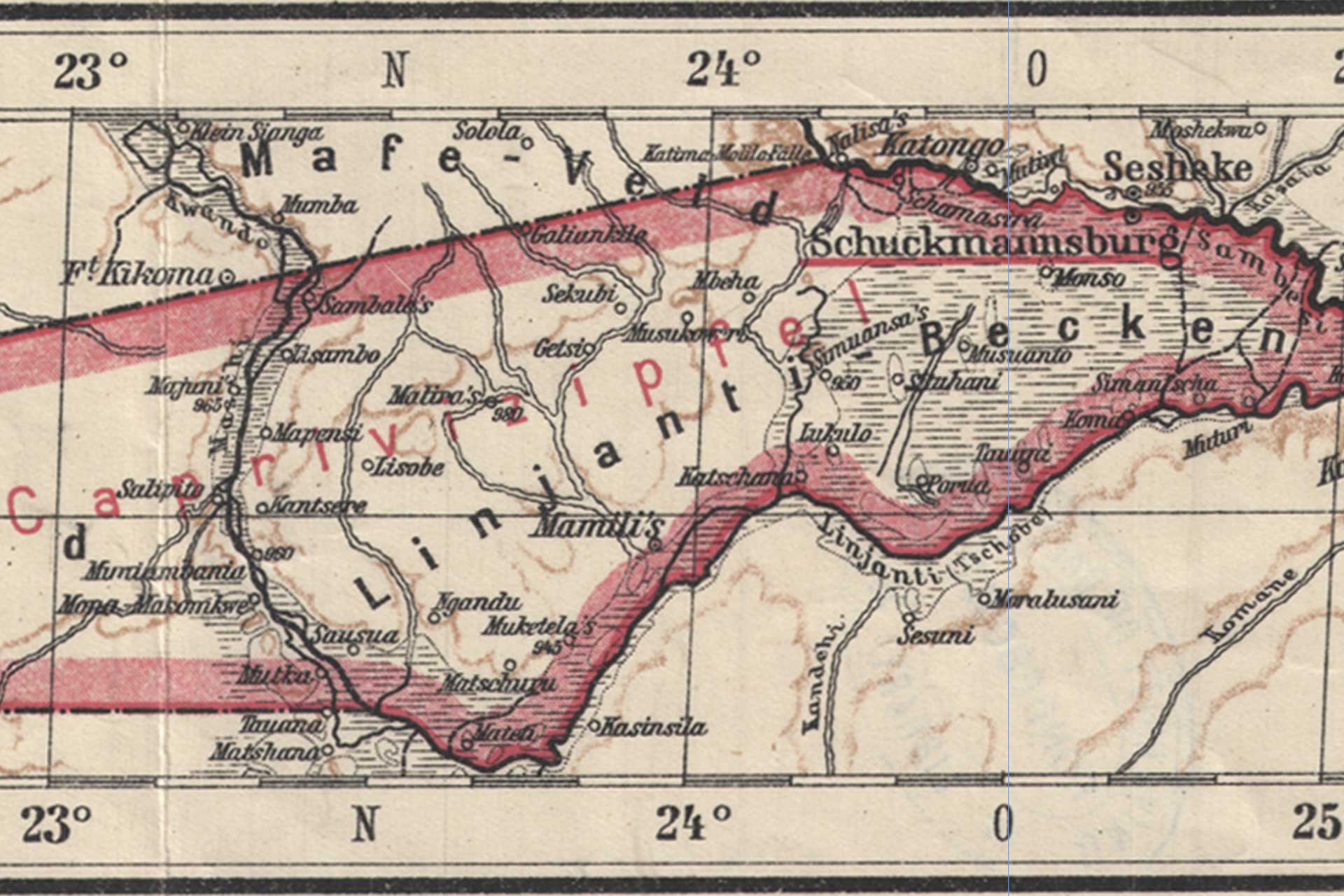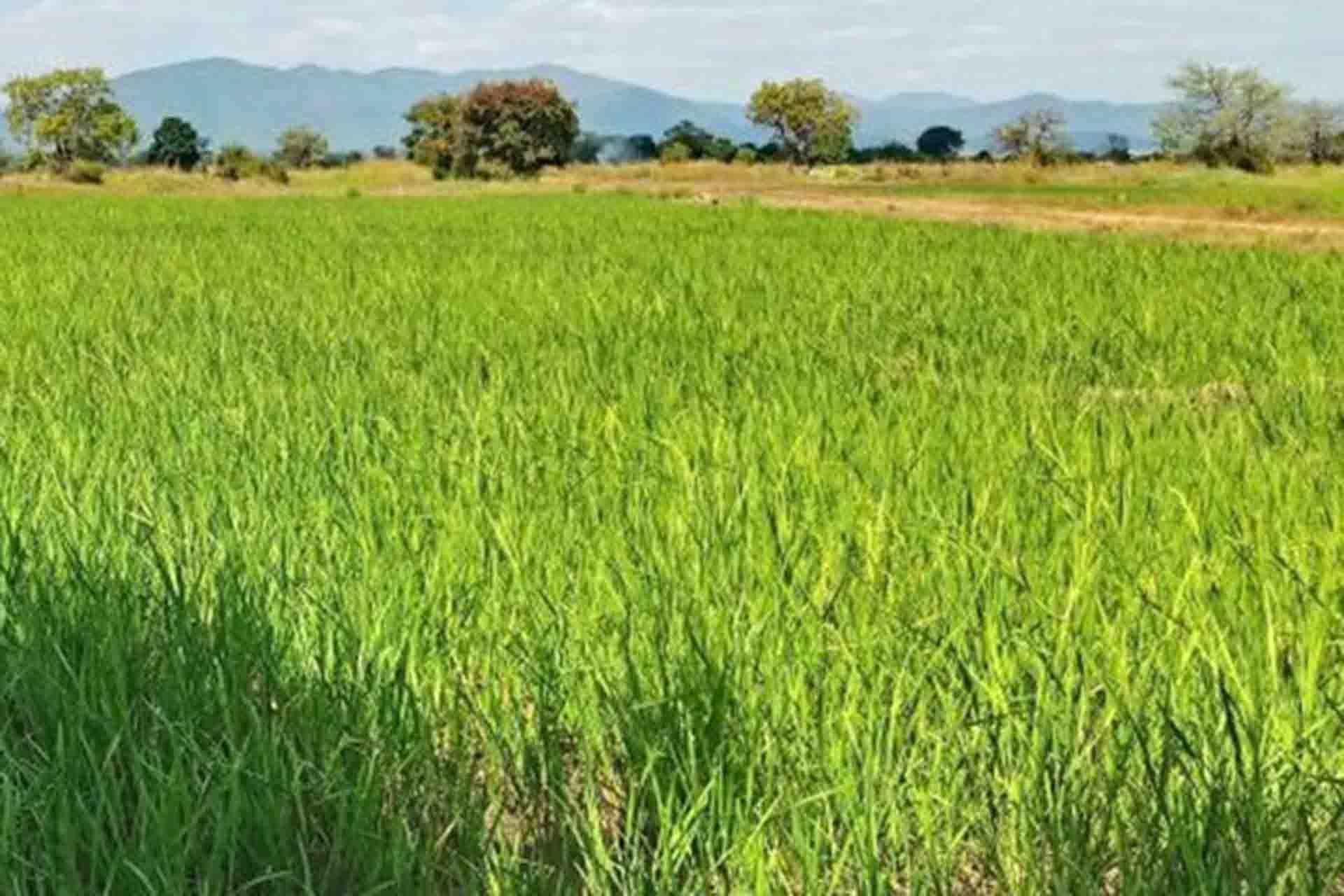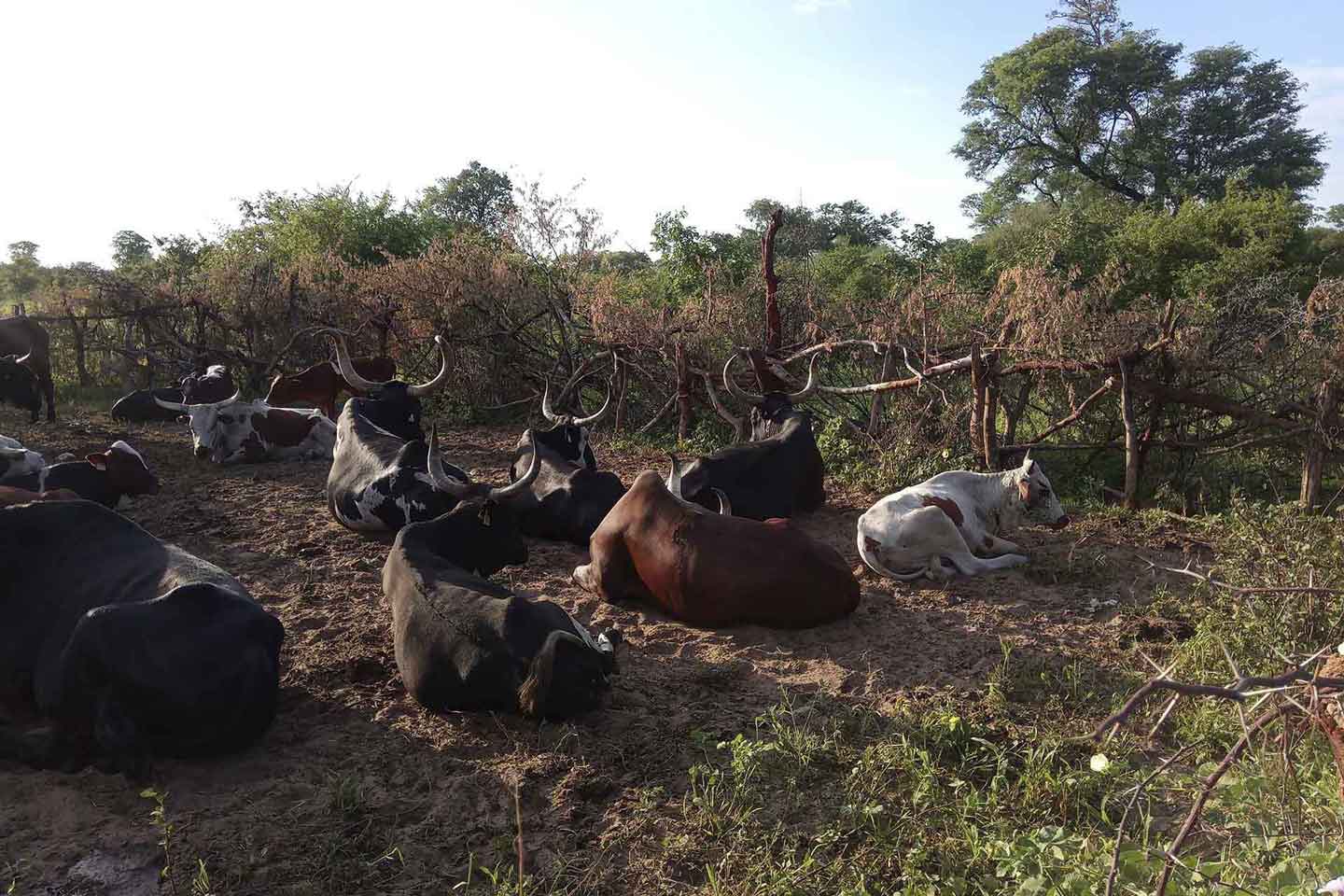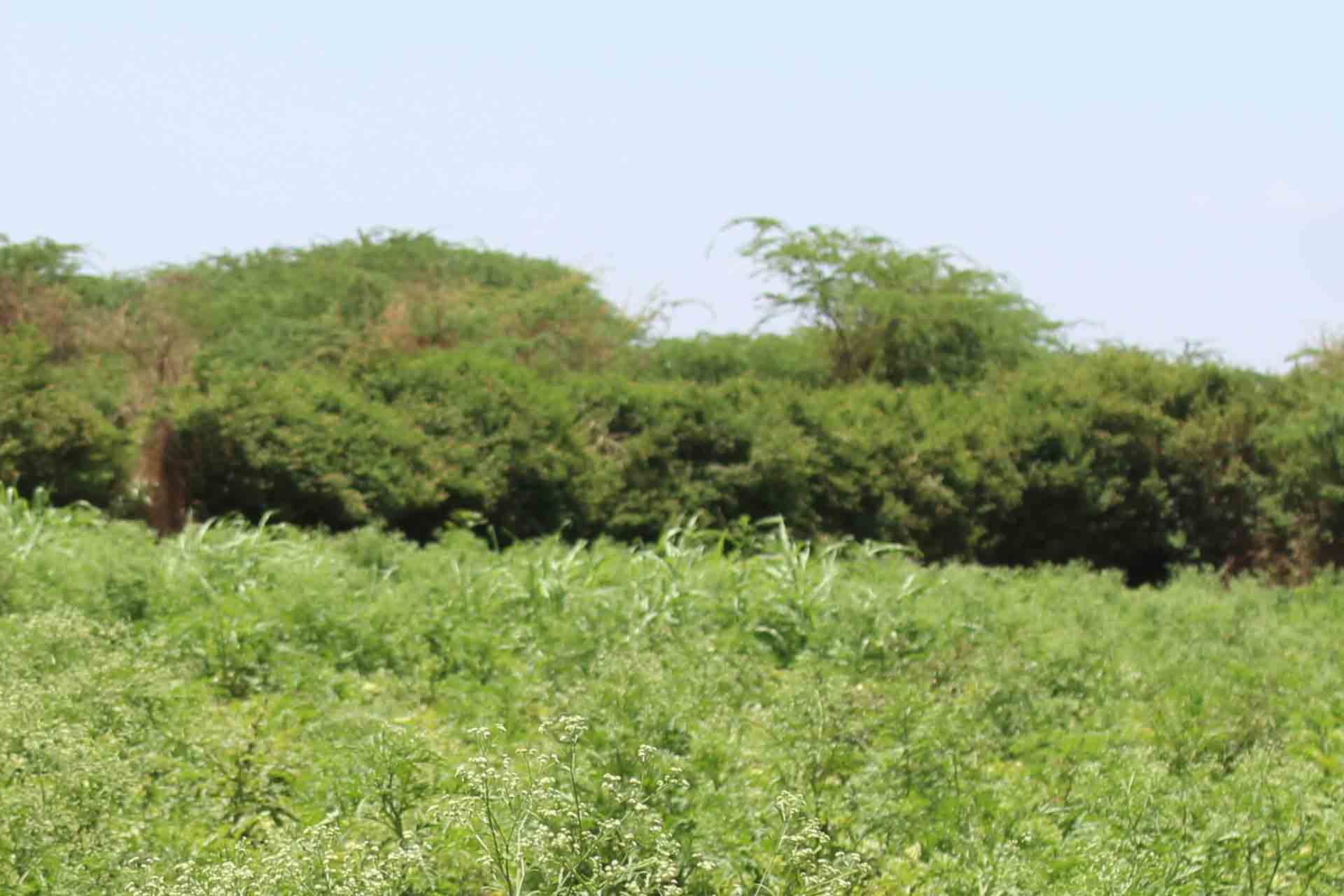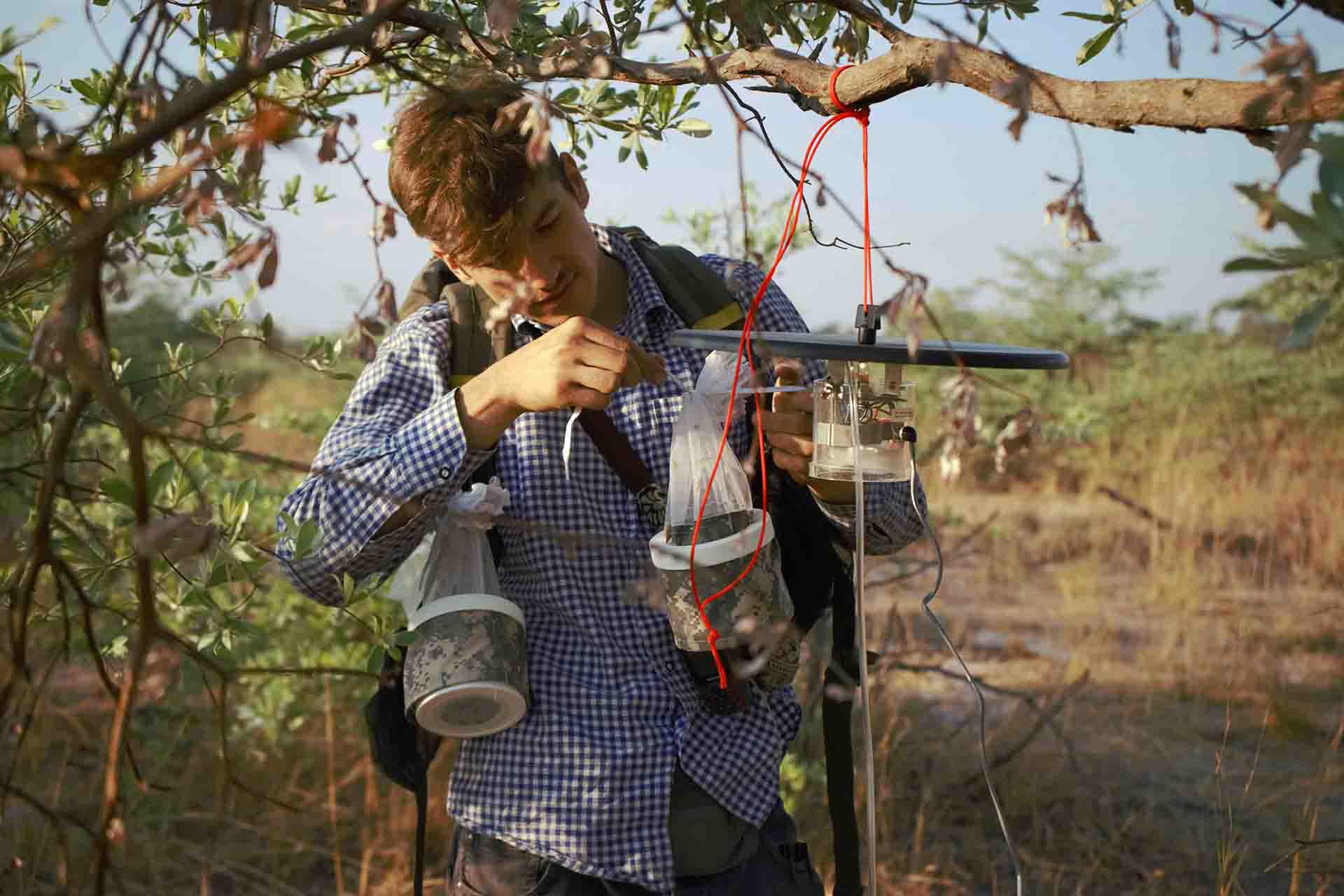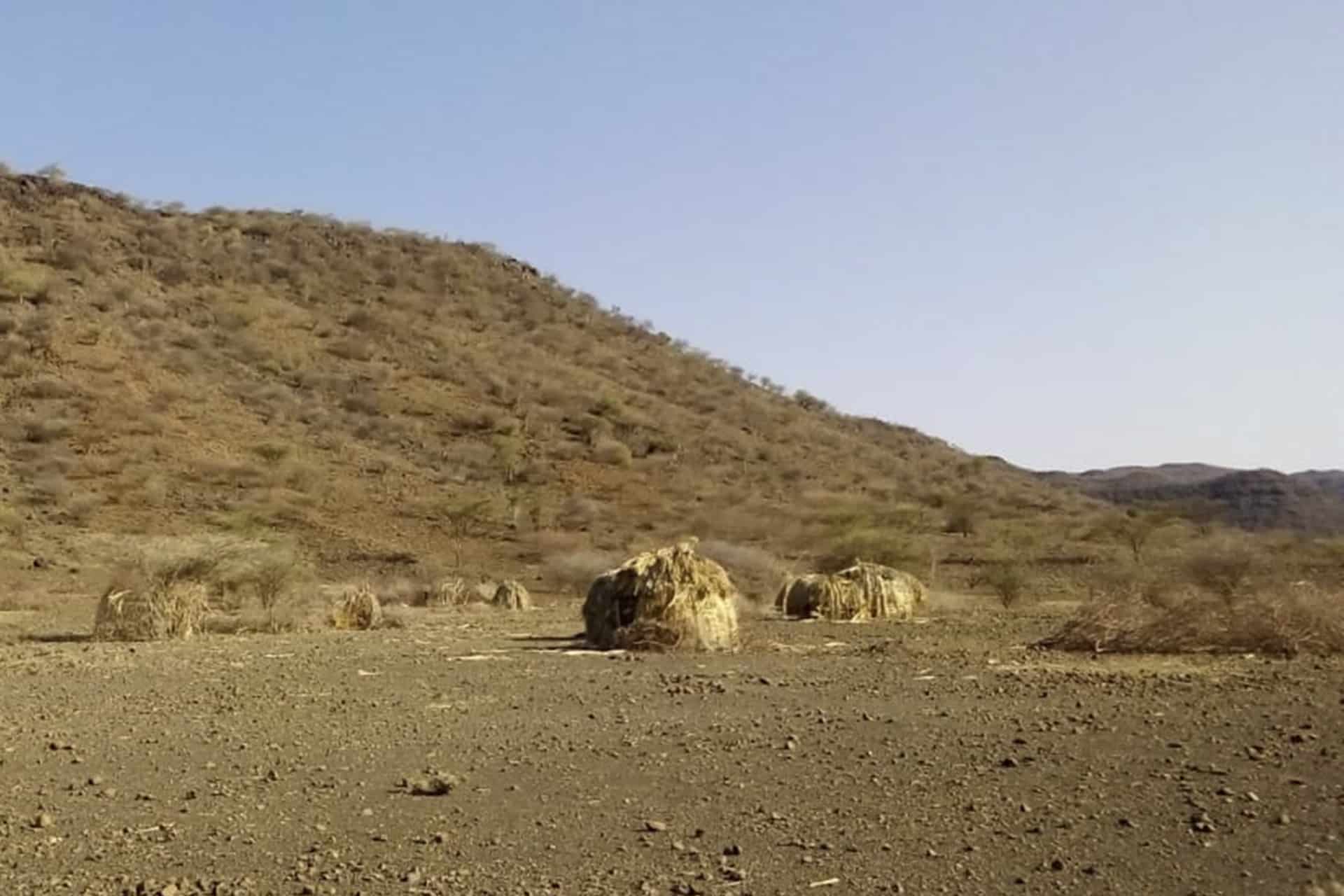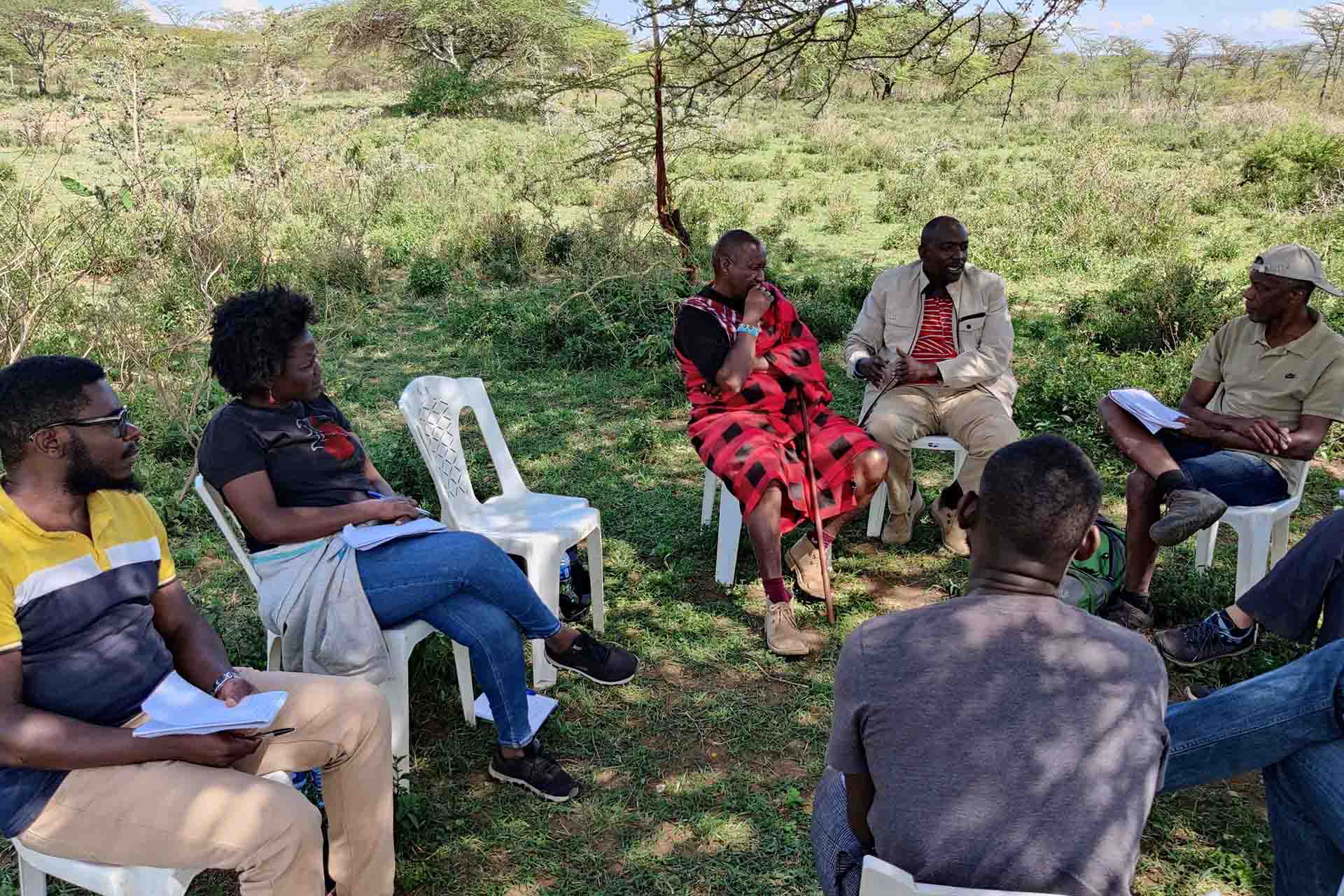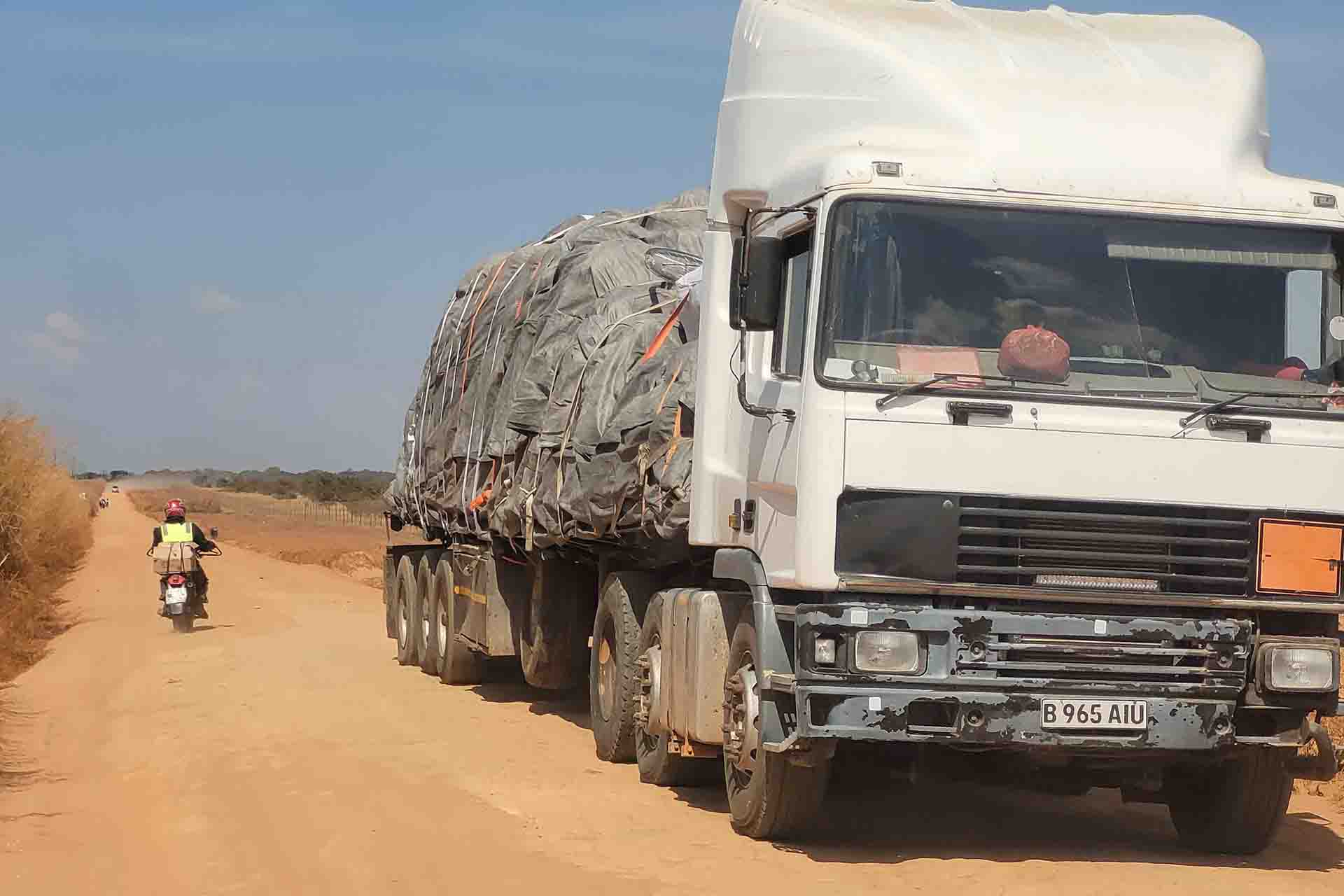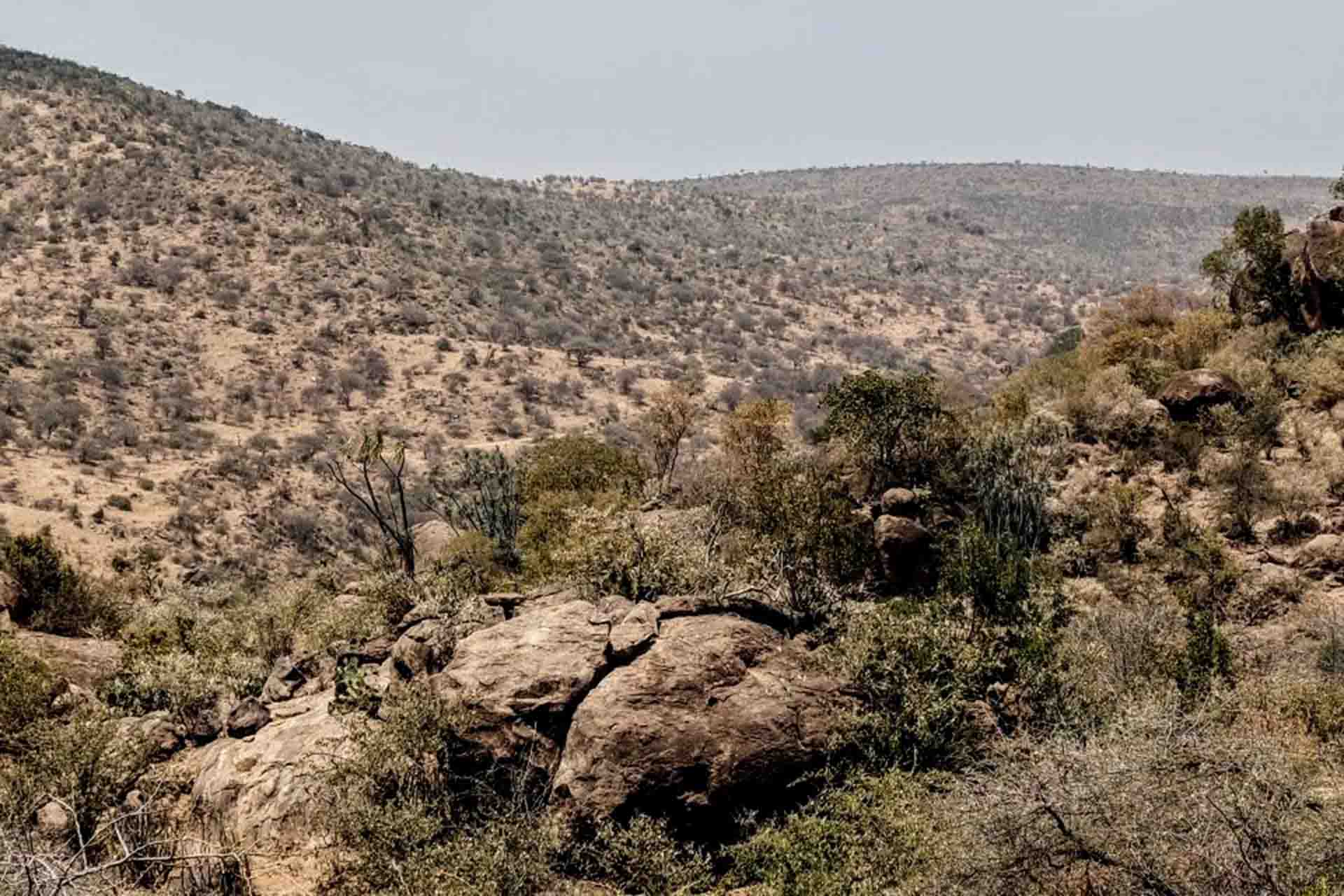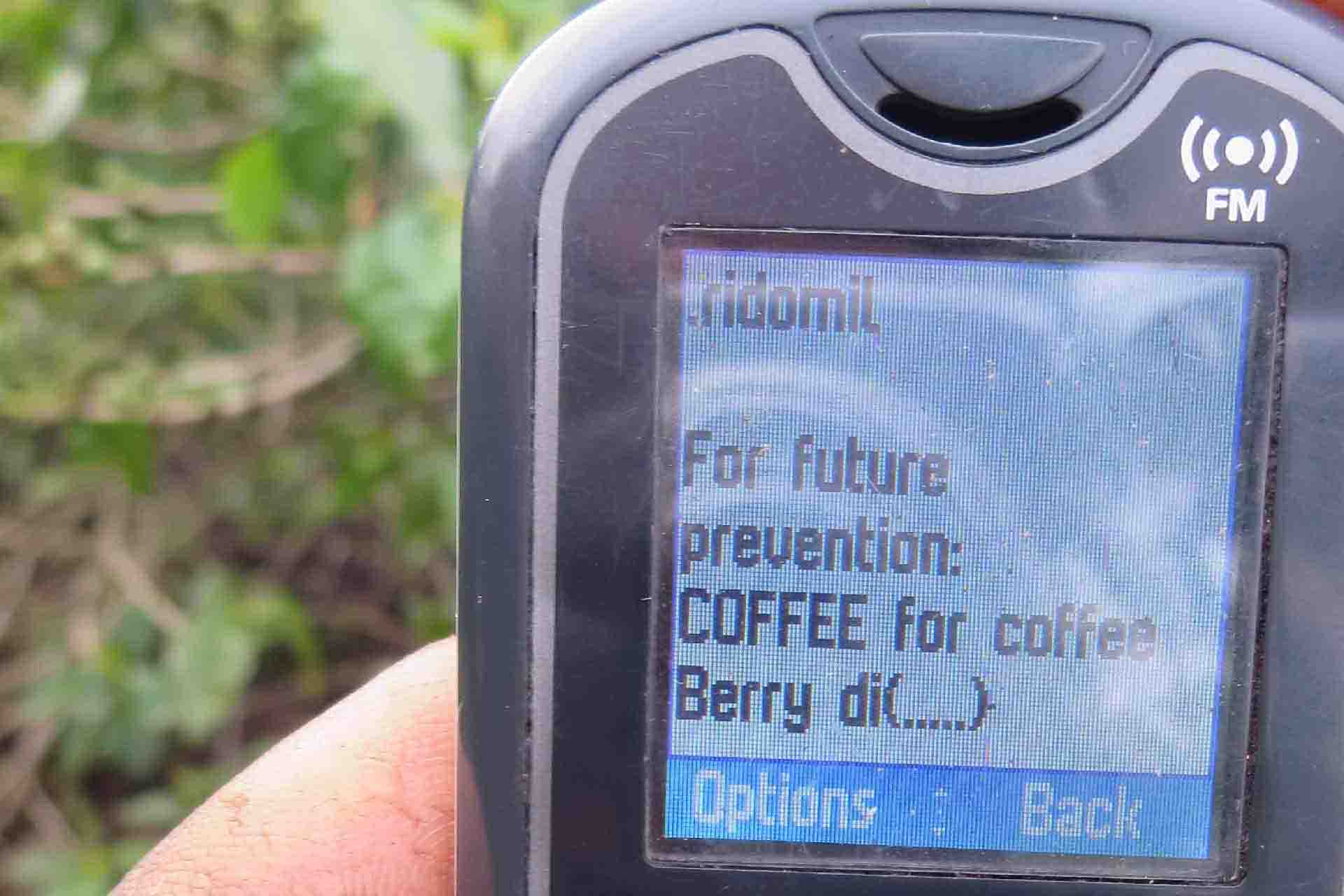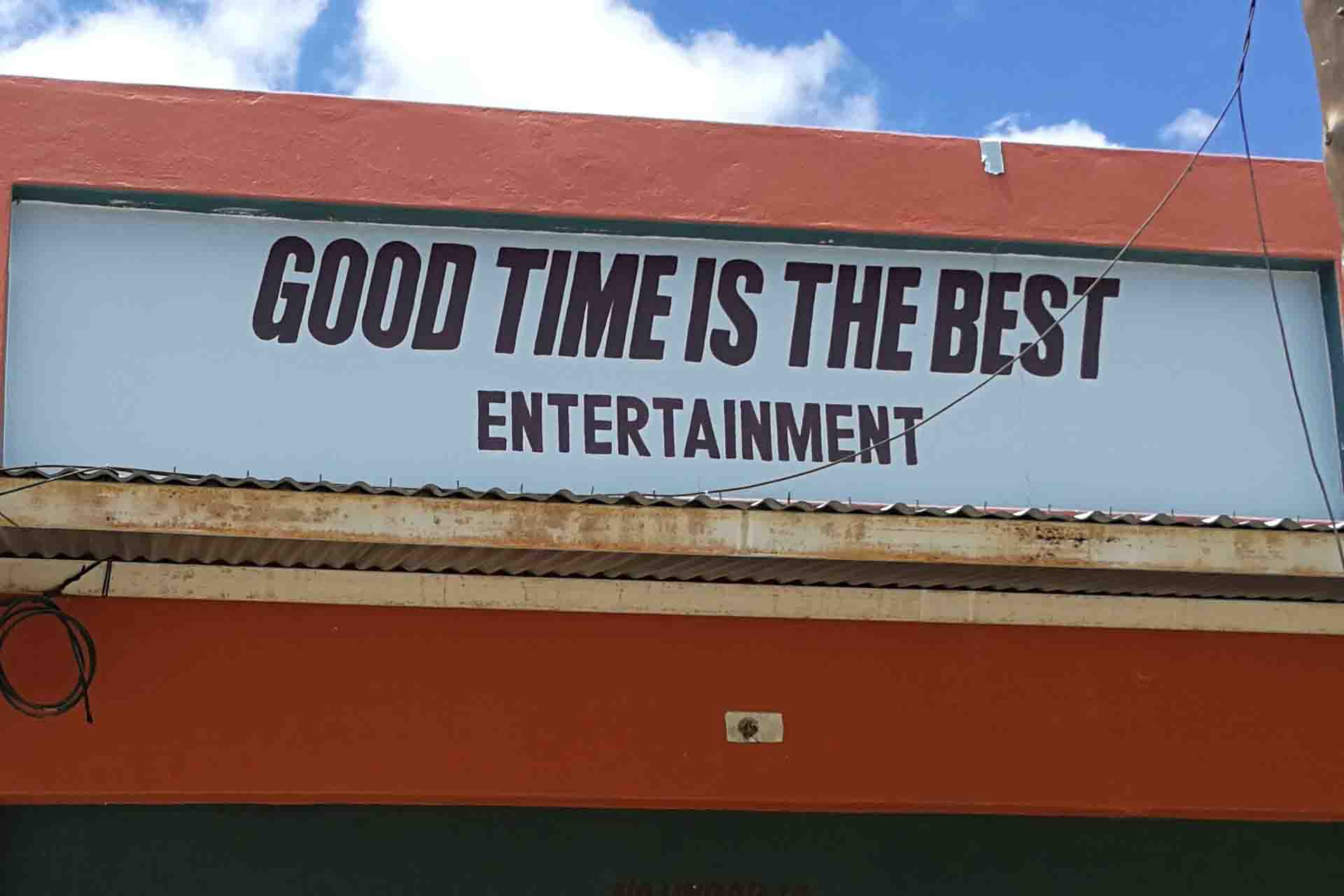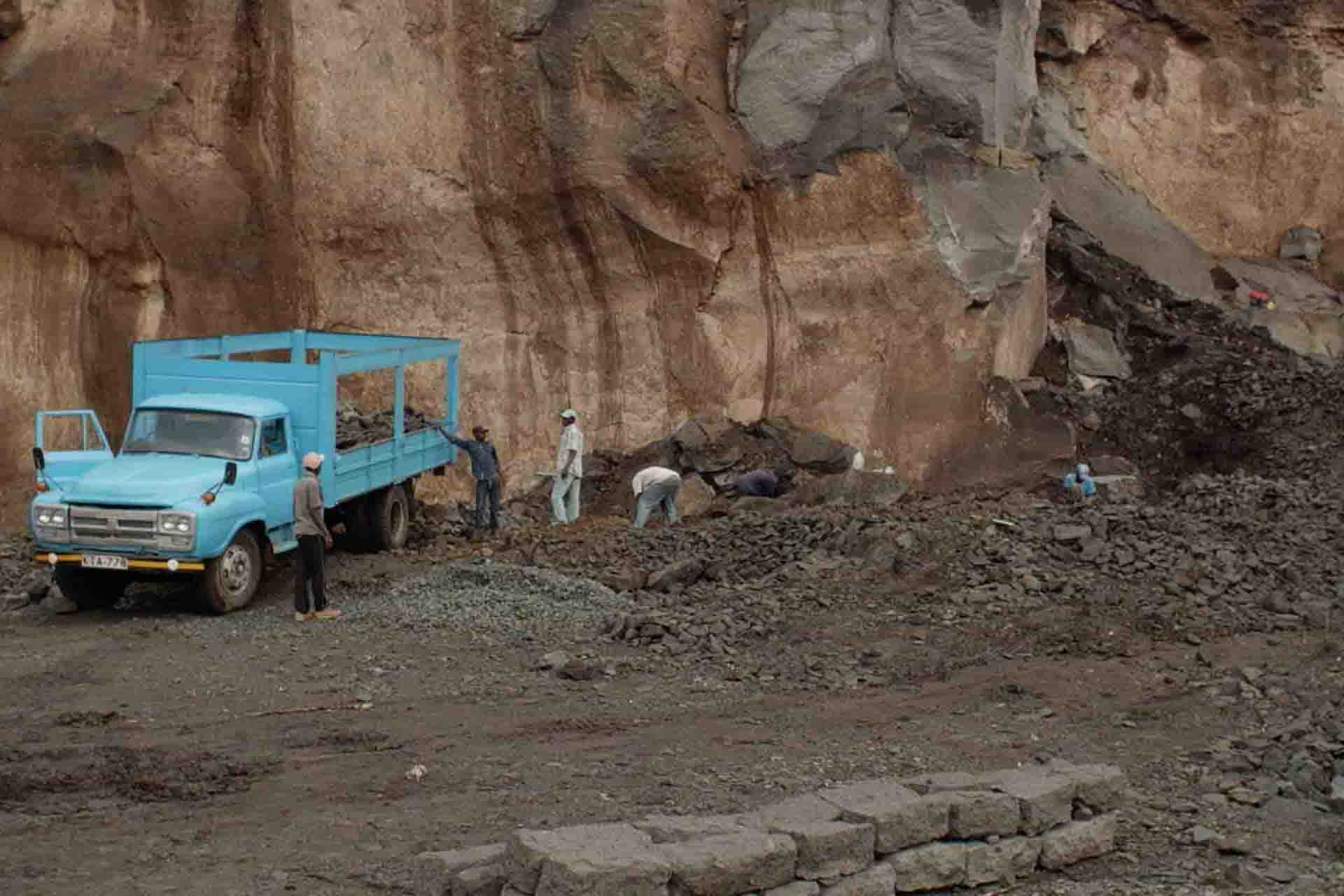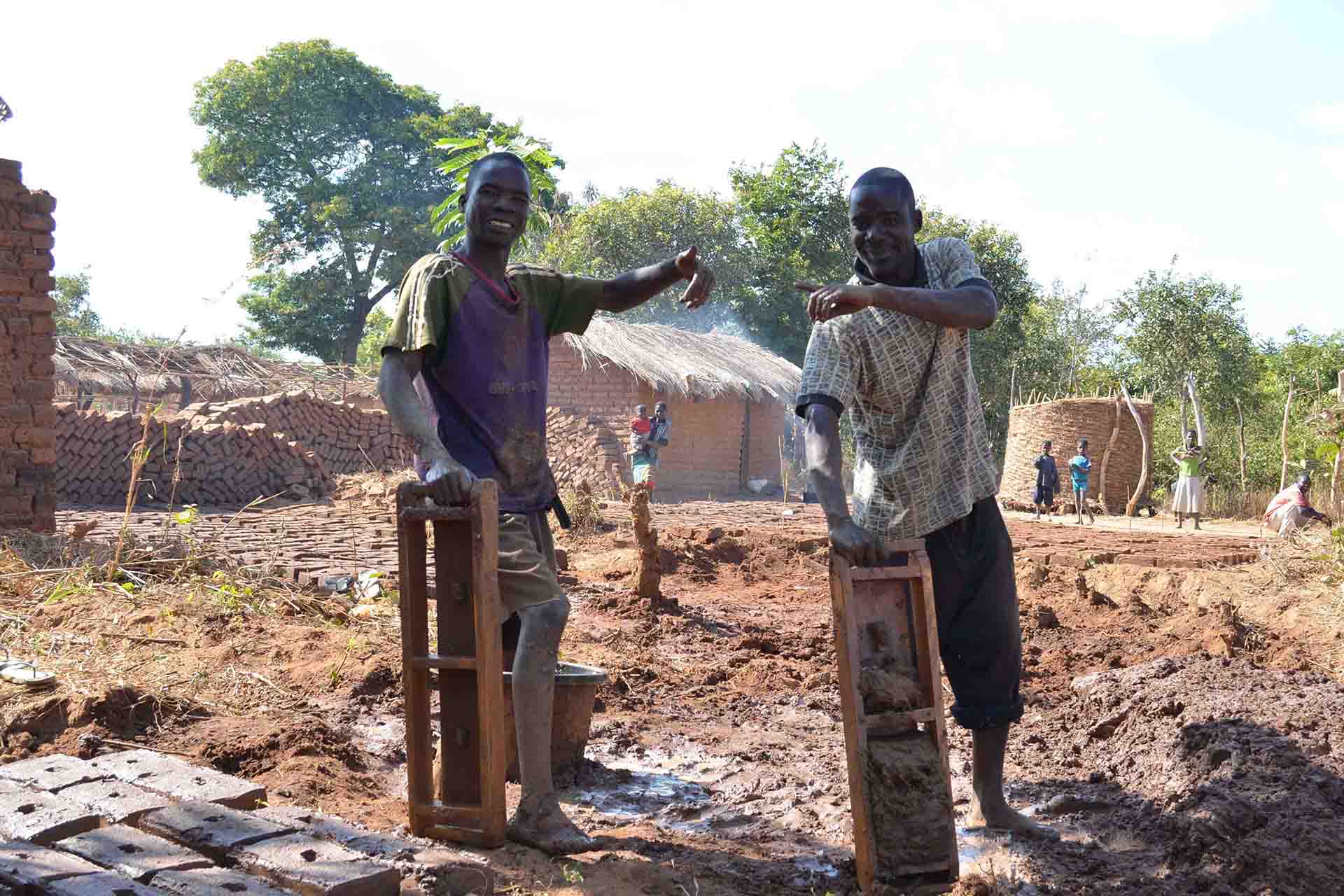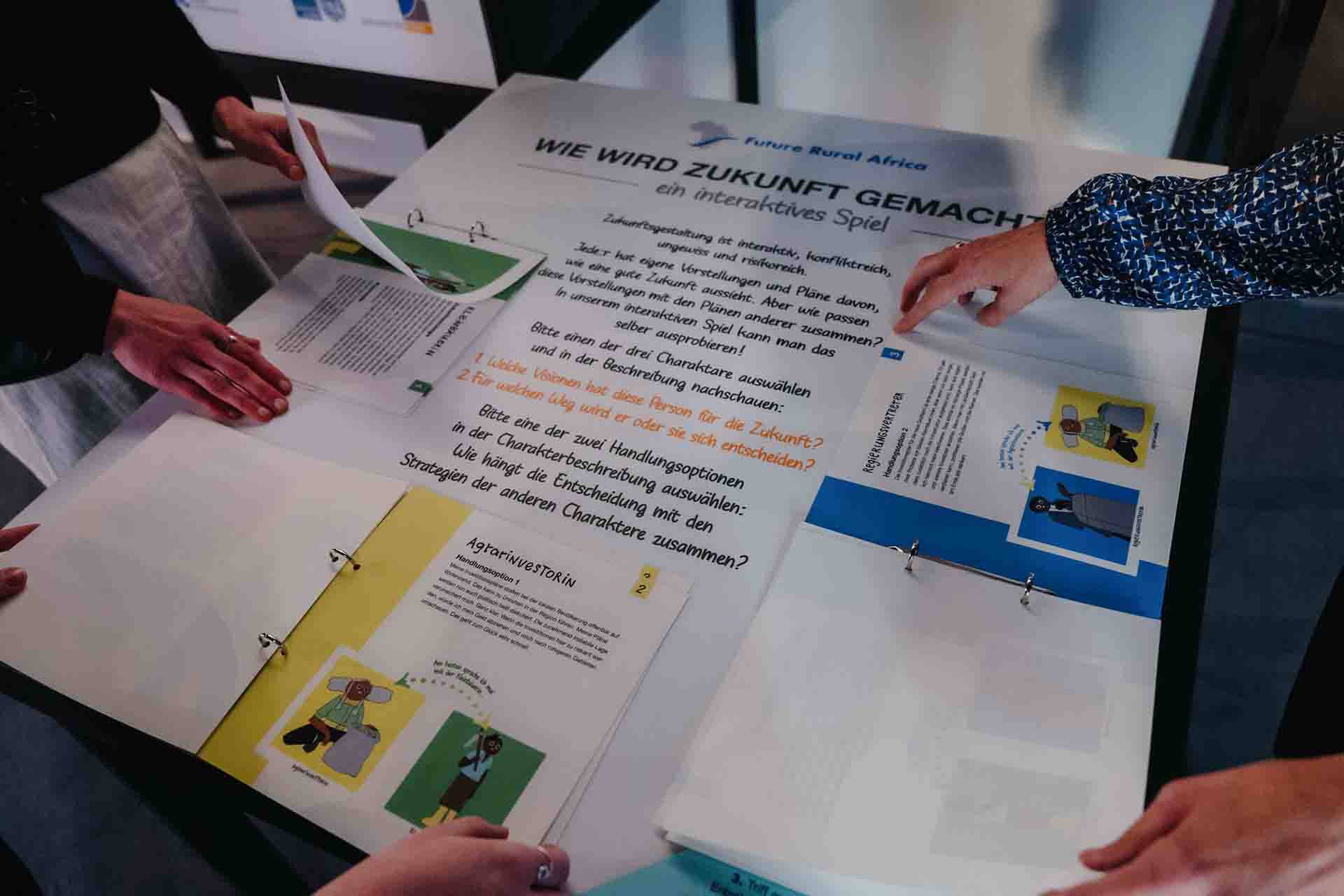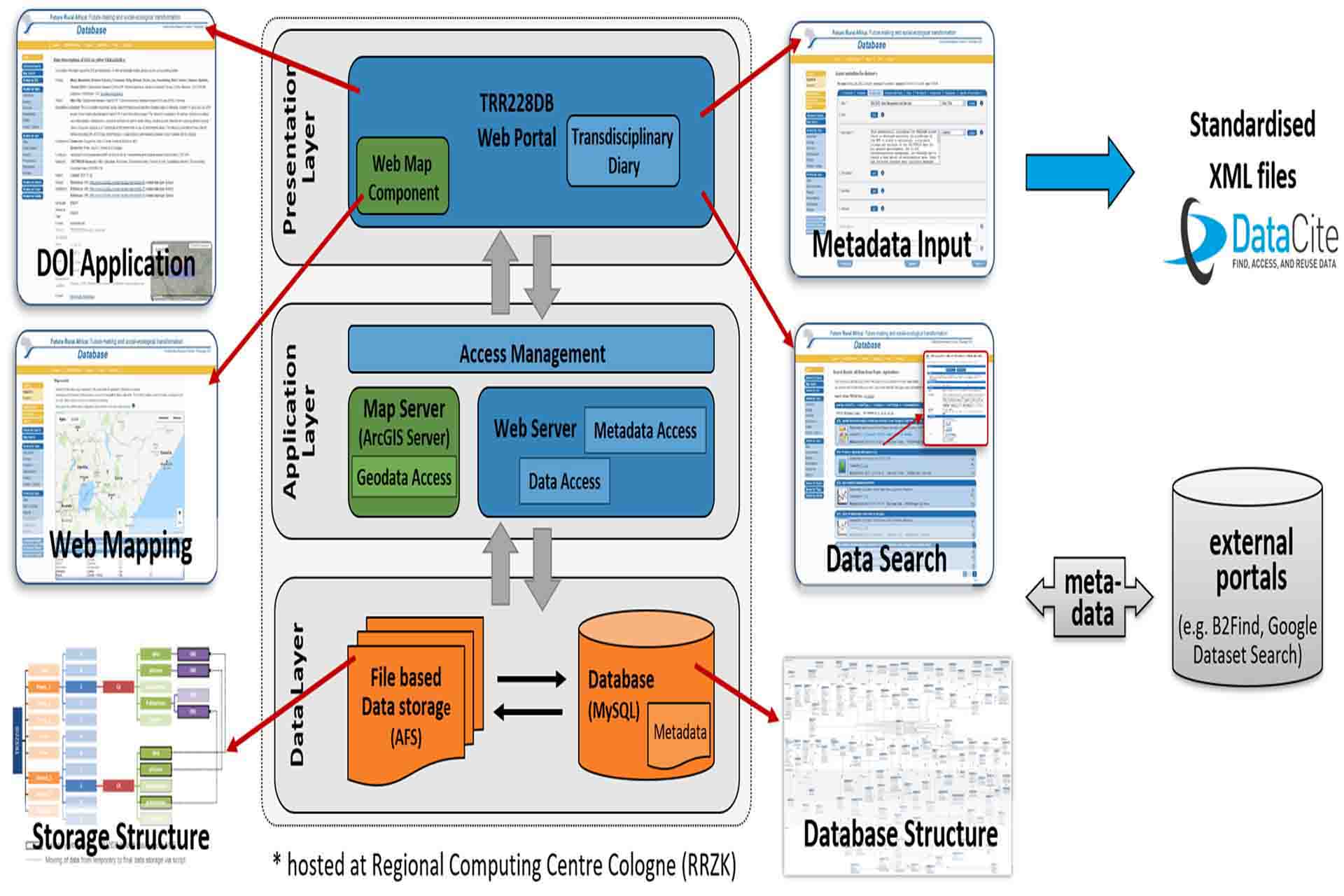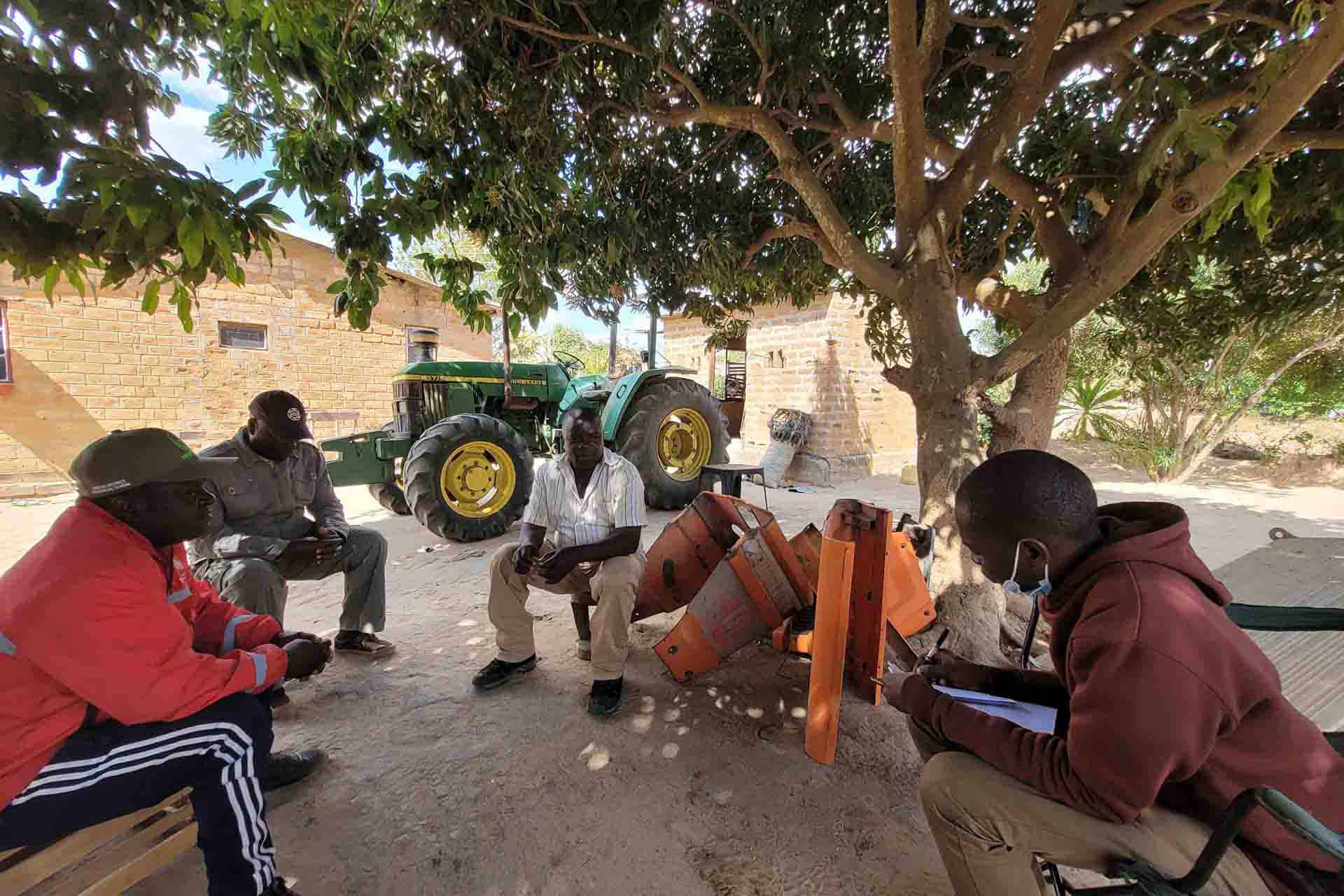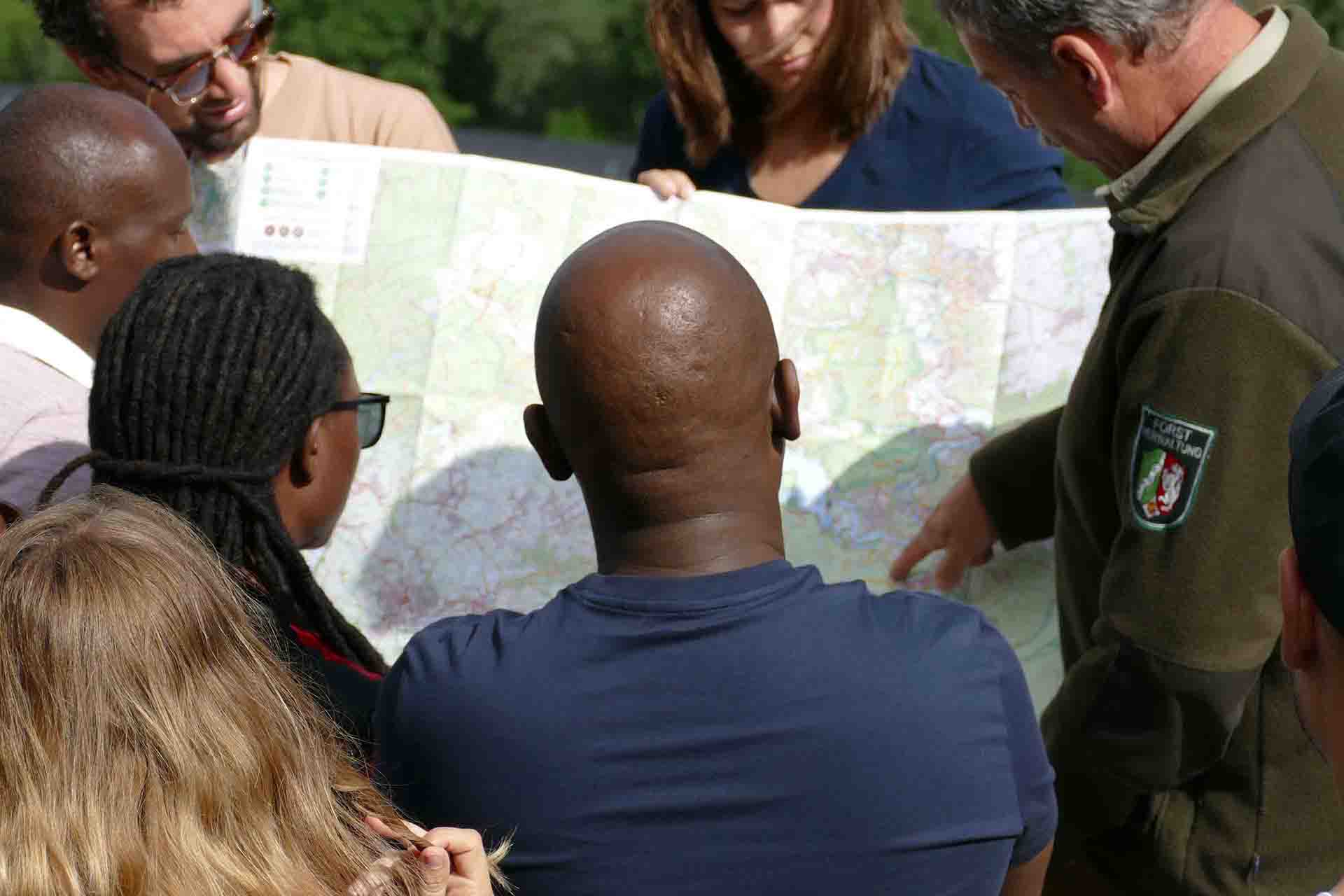About the CRC
Welcome to the Collaborative Research Center TRR 228 ‘Future Rural Africa‘
Picture: Nairobi, Kenya © wollwerth, Envato Elements
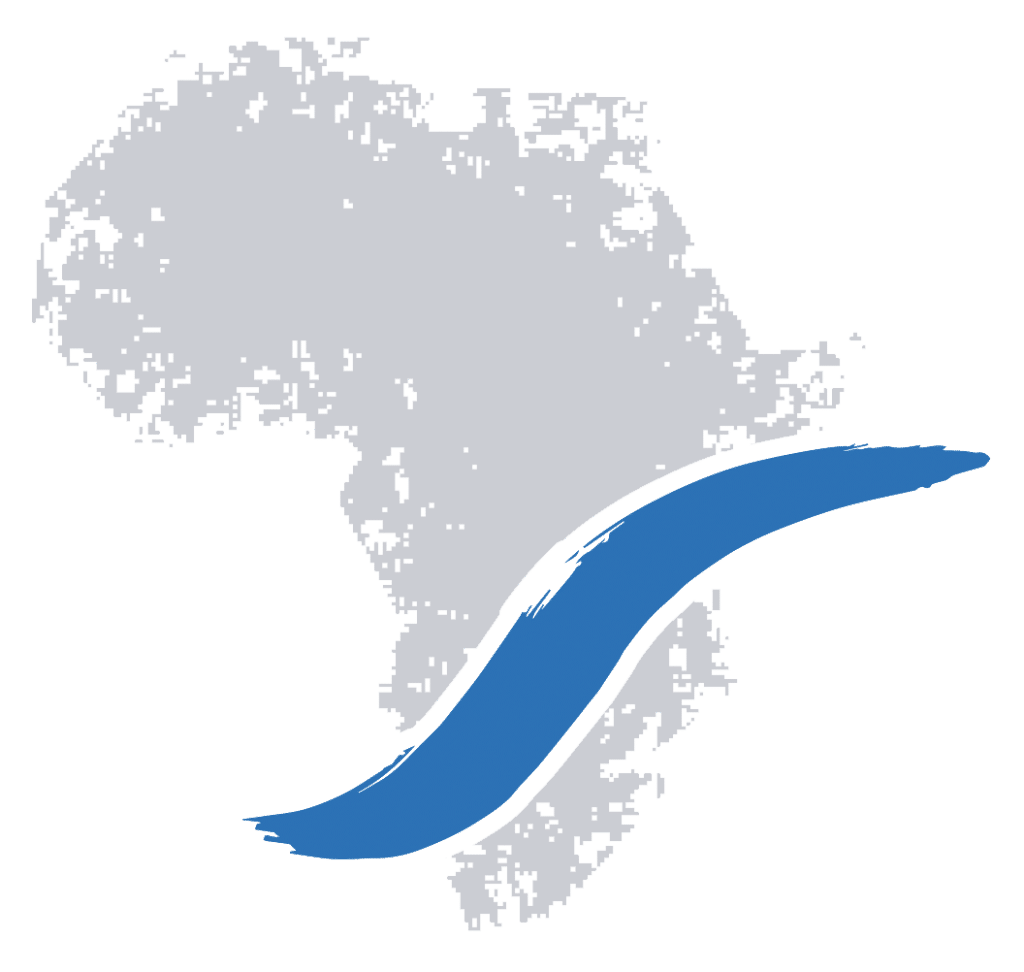
Summary of the CRC ‘Future Rural Africa‘
Envisioning the Future of Rural Africa
The Collaborative Research Centre (CRC) is a research conglomerate funded by the German Research Foundation (DFG). It aims at understanding African futures and how they are “made” in rural areas by investigating land-use change and social-ecological transformation. The Universities of Bonn and Cologne (UoC) have a track record of collaborations in this regional and thematic field of interest, combining complementary expertise from a wide range of disciplines in natural and social sciences. “Future-making” refers to physical changes as well as social practices that shape future conditions by making the future an issue in the present.
The first funding phase of the CRC focused on the two seemingly opposite, yet often mutually constitutive processes of agricultural intensification and conservation. This focus is widened in the current phase to include infrastructuring as a third essential process. With infrastructuring we refer to the establishment of large-scale infrastructure, which we consider as an additional driver of land-use change and social-ecological transformation. All three processes – intensification, conservation, and infrastructuring – contribute, in often overlapping dynamics, to grand-scale transformations in our research areas with multiple micro-scalar repercussions. The CRC conceptualizes such processes of social-ecological transformation as expressions of “future-making”. This builds on the hypothesis that imagined futures and the different ideas about how they can be realized have a decisive impact on current land-use dynamics. The projects of the CRC analyse how different approaches to the future, and also surprises and unintended side-effects, inform the politics and practices of large-scale land-use change, and how they relate to each other.
Study Sites and Regional Focus
Exploring the Role of Growth Corridors in Sub-Saharan Africa
Under the prevailing conditions in large parts of sub-Sahara Africa (SSA), growth corridors play an important role as drivers of spatial change, especially with regard to agricultural intensification, but also relating to the expansion of conservation areas. The three study sites selected all have a connection to growth corridors, but in different ways. In particular, we will concentrate on three different examples:
Kenyan Rift Valley (KRV)
The Kenyan Rift Valley (KRV) in relation to the “Lamu Port – South Sudan – Ethiopia” (LAPS-SET) corridor
The Southern Agricultural Growth Corridor of Tanzania (SAGCOT)
The Southern Agricultural Growth Corridor of Tanzania (SAGCOT)
Kavango-Zambezi Transfrontier Conservation Area (KAZA)
The Kavango-Zambezi Transfrontier Conservation Area (KAZA) in southern Africa within the Walvis Bay-Ndola-Lubumbashi Development Corridor (WBN- LDC).

Project Structure
The CRC is structured in three project groups, each organized around a bridging concept that addresses specific aspects of SET and future-making.
Project Group
A Coupling
Project group A (‘coupling’) studies the articulation between social and ecological subsystems,
Project Group
B Boundaries
Project Group B (‘boundaries’) looks at the shifting zones of interaction and confrontation
Project Group
C Linkages
Project Group C (‘linkages’) explores cross-scalar drivers, connections and causations.
Project Group
Z Projects
Project Group C (‘linkages’) explores cross-scalar drivers, connections and causations.
Download Our Brochure
For More information please take a look at our CRC-TRR 228 Brochure 2023
Conceptual Framework
Why rural Africa?
The CRC views the rural not in a dualistic way as the opposite of the urban, but as a socio-spatial entity that is intertwined with ‘the urban’ and ‘the world’ through various connections, like commodity chains, agro-food systems, migration regimes, communication networks, or other global flows in the context of globalization. Boundaries between the rural and the urban are progressively blurred, with urban residential settlements mushrooming in rural areas, multi-local households, new technologies like mobile phones and digital cash transfers, etc.
Three bridging concepts
The CRC is organized around three bridging concepts, i.e., coupling, boundaries and linkages (see figure 2). They are salient for the CRC’s research design and constitute the bases for the three project groups A, B, and C. They refer to underlying dimensions that intersect the processes of future-making and socialecological transformation. The purpose of the bridging concepts is to facilitate integration between different disciplinary and regional research foci.
An important aspect in conceiving the future is the question whether the future is uncertain and open, or whether it is, at least partly, predetermined. We suggest distinguishing between futures of probabilities and futures of possibilities. The future may thus be understood either as the outcome of predictable processes that can be planned, calculated, measured, modelled, and managed in the present, or in terms of imaginations, visions, aspirations and political discourses that have an influence on decision making and future-oriented practices. At the same time, plans, calculations and models are developed in an attempt to control what is ultimately a future that is not fully predictable. Future-making in rural Africa is framed by controversial discourses about modernity, development paradigms, and Westernization, which are embedded in specific human/nature-relations. Scientific perspectives on these relations differ greatly between the CRC´s participating disciplines.
Research questions
Based on the experiences from phase I, our analyses of current trends of socio-economic dynamics, political shifts and ecological changes we formulated a set of overarching lead questions for phase II, which add up to the questions of the previous phase.
How are processes of conservation, intensification, and infrastructuring related to each other, and what is their role for future-making and social-ecological transformation?
What is the impact of uncertainties, disturbances, and unpredictable events on conservation, intensification, and infrastructure practices as well as on social-ecological systems?
How does future-making combine visions of the future with possibilities and probabilities, and how is this influenced by the positionality of the respective agents?
Which implications do our observations of future-making have for a critical understanding of “development”?
Envisioning the future
The title “Future Rural Africa” does not mean that the CRC aims at foretelling the future. Instead, the research program will examine the processes and practices that reflect the future in the present or, in other words, that “fold” the future into the present, and that influence contemporary decisions and thereby prepare the ground for processes that shape future conditions. Future-making refers to the ways of how ideas, expectations and imaginations of the future inform action in the present.
Problem setting
The future of rural Africa is open – for transformation, surprise, hope, fear, speculation and contestation. This is the point of departure for the CRC´s conceptual framework and theoretical perspectives. These changes happen amidst controversial visions of the prospects of the continent. On the one hand, optimistic outlooks on “Africa rising” are featured by international development banks, foreign donor organizations as well as African governments themselves. On the other hand, critical voices are skeptical whether current developments are sustainable and beneficial, and they warn of a “new scramble for Africa”. Amidst these controversies, the future is explicitly addressed as the bone of contention. And yet the question arises whose future the different voices are referring to, who produces the various visions of the future, and how these alternative visions are put into practice. The future is not simply emerging from the past, but it is manufactured in an interplay of numerous actors, interests, and institutional settings linked across manifold scales.
Processes
Making sense of the complex situation requires a closer look at the processes and drivers of change. Two dominant types of land-use change can be discerned, i.e., intensification of agricultural production on large and medium-sized farms, and conservation of natural resources in national parks, community-managed conservancies and game reserves. Both processes are currently gaining ground in a highly dynamic way. They both respond to global regulatory regimes and incentive structures, leading to a transformation of nature and social ecologies. As a consequence, both avenues of land-use change converge in massive transformations of local livelihoods, including the marginalization, dispossession and even eviction of local populations, with an impact on land owner- ship, labor, food security, health, and social structure. What makes these processes problematic for many people is not so much change as such, but its unpredictability.
Our Projects
Interdisciplinary Team of Experts
Our Team
We are proud to have a talented and dedicated team of researchers and coordinating staff who are working together to achieve our mission. Our team of researchers is made up of individuals from a wide range of disciplines including geography, anthropology, political science, agroeconomics and soil science.

